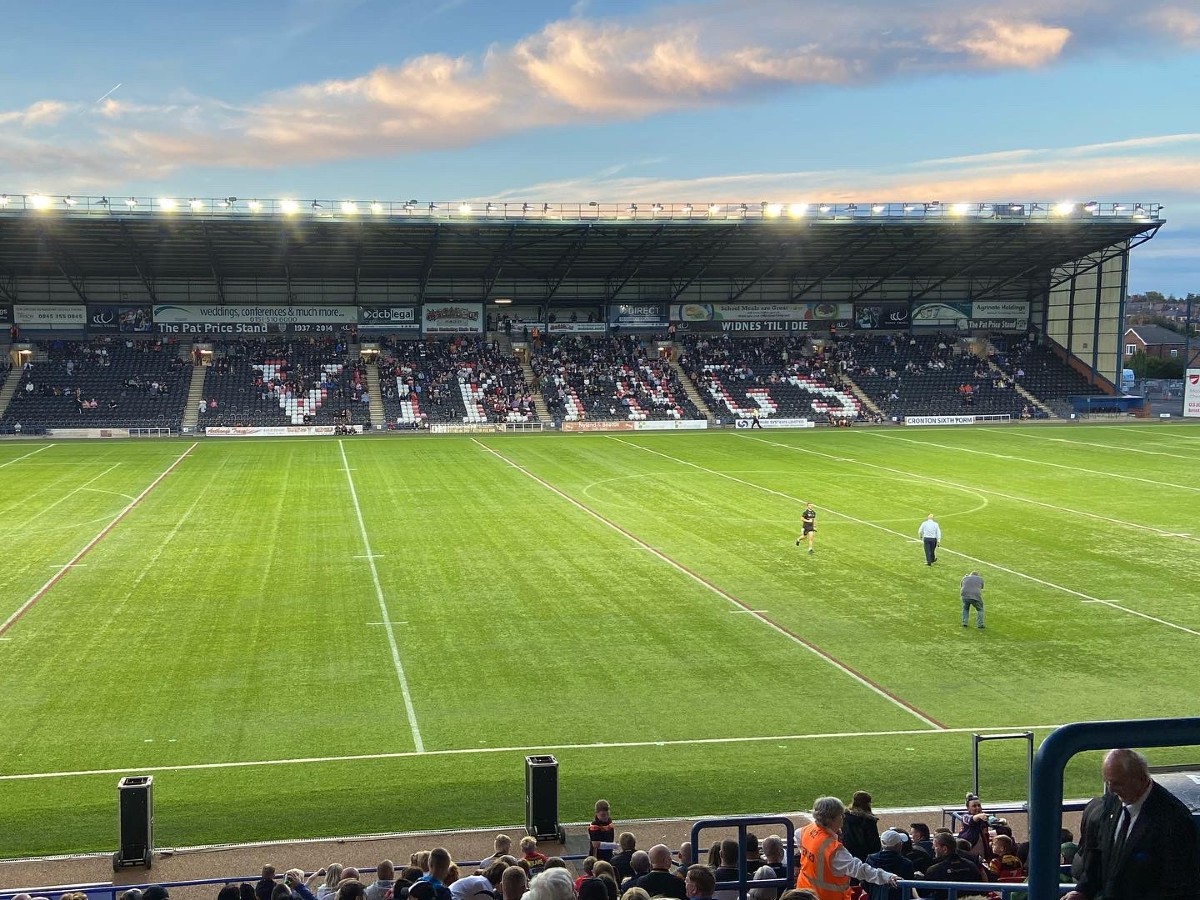From 2024, rugby league’s focus swings to the off-field progress that clubs are making with the removal of automatic promotion and relegation.
The new-look licensing style system being implemented by the RFL’s strategic partners IMG will award clubs one of three grades – A, B or C – with Grade A clubs being guaranteed a place in Super League.
Any remaining spots in the top flight will be taken by Grade B clubs.
Widnes were one of the beneficiaries of the last era of licensing, being elevated to Super League ahead of the 2012 season after ticking the appropriate off-field boxes.
However, the club finds itself in a much different scenario now – with no multi-millionaire backer and no academy.
A so-called dummy run of grading is expected to be done by the end of 2023, which will give clubs and fans the chance to see just where they might land in terms of a ranking of rugby league clubs.
On the field will still have an impact, though Widnes’ lowly league finishes in the bottom half of the Championship in each of the past three years will be detrimental.
How much difference that will make if all the off-field criteria is met remains to be seen.
What is the off-field criteria?
Clubs are being asked for the following information as part of the grading assessment.
Average home attendance
Widnes’ average is just shy of 3000 and puts them in the top four of the Championship attendances (below Bradford and Toulouse, and virtually the same as Featherstone).
That was also the case in 2022, although it will be interesting to see how attendances in 2021 are judged, given games were impacted by COVID. The particularly stringent rules enforced by Halton Council means Widnes’ average that season was significantly lower than usual, placing them sixth in the division.
Social media followers & website traffic
Clubs have been asked to provide a total number of followers on each social media platform required – namely Facebook, Instagram, Twitter, TikTok and YouTube.
As well as that, clubs are to provide detail of “engagements” on social media, which includes video views, reels and stories for each individual channel.
Another digital metric is website visits – so how many people are accessing the club’s official website.
Finances
While the previous licensing era was relatively transparent in terms of the elements to what made a grade, there are certainly finer details in the grading criteria that will simply be a complete unknown to fans.
Elements of club finances can be found via Companies House, but certainly not to the detail required to provide an accurate assessment in comparison to others.
Clubs will be asked for:
- Turnover (excluding central funding)
- Percentage of turnover that isn’t central funding
- Owner investment
- Balance sheet strength
- Working capital
The allocation of central funding for clubs is still unknown for 2024.
Stadium and facilities
One of Widnes’ main strengths will be the Halton Stadium due to the facilities it provides, even if it is council owned.
As a former Super League club, Widnes have already proven they meet the criteria for being in the top flight and the Halton Stadium under the lights still provides a terrific TV occasion.
- Capacity
- Number of seats
- Sponsors seats
- Corporate lounge capacity
- Broadcast studio
- Media & photographer facilities
- Big screen
- Perimeter LED advertising boards
There are some areas that simply won’t currently be provided by Championship clubs as there is no need to. Whether clubs opt to invest in this to try and boost their grading remains to be seen.
Community
Rugby league’s biggest strength will always be its community, and there was a movement to ensure that this was factored in to the grading criteria after it had initially been left off in the initial proposals.
Therefore, clubs must confirm it has a foundation and what the annual turnover is for it, as well as some specifics on governance relating to things like sustainability and inclusion.
Where will Widnes come out in IMG’s criteria?
It is hard to imagine that Widnes will get anything other than a Grade B.
There will only be a handful of Grade As dished out, meaning Grade B will cover the bottom few current Super League teams and those in the Championship with the capability of stepping up.
In reality, that means Widnes should comfortably be in the top 20 teams in the RFL pyramid. Whether they have anything that can propel them towards being able to compete to reach top 12, remains to be seen.
A dummy run of club grading is expected to be announced mid-October after the Super League and Championship Grand Finals, to give everyone an idea of how the process will work for the 2025 season.
This will highlight areas for immediate improvement and also reveal who is in pole position for the Super League spots in 2025.


